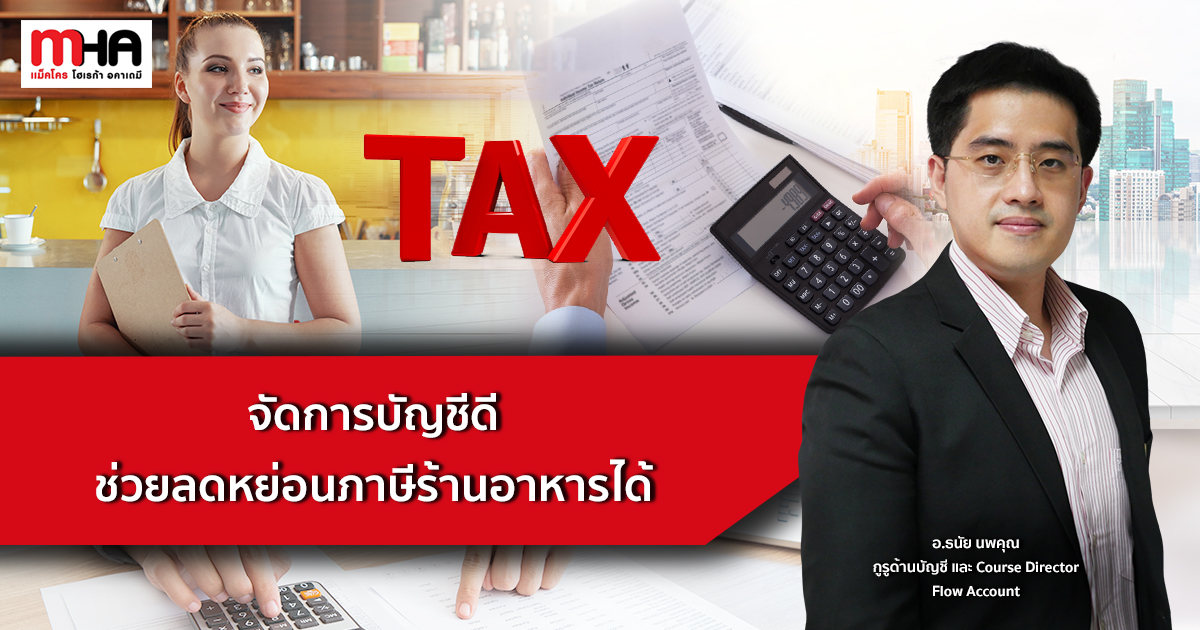How Do You Register a Restaurant That You Open?
This is a question that practically everyone has.
When opening your first ever restaurant, do you need to register it commercially?
Because some people say they have to register while others say they don’t, many people aren’t sure whether or not it’s necessary to register commercially when opening à la carte restaurants in front of their houses. We have some answers to this question.
Click to read the following topics:
- When doing business, you should make certain that everything is in order in compliance with the law.
- Commercial registration for ordinary persons
- Documents to accompany commercial registrations (ordinary persons)
- Commercial registrations for juristic persons
- Differences between ordinary person and juristic person registrations
- Next topic: taxes, something you need to be thorough about
When doing business, you should make everything proper in accordance with the law.
This article will mainly adhere to the law, because even though we believe in reality that many restaurants are not commercially registered, the law requires mandatory commercial registration whenever we are operating a business. The purpose of the registration is to report that we have started operating a business properly and openly with a place of business listed in the Ministry of Commerce system. Accordingly, there are two types of registrations, namely, ordinary and juristic person registrations.

Commercial Registration for Ordinary Persons
This is commonly known as the “commercial registration”.
- In Bangkok, you can apply for commercial registration at the Fiscal Policy Office, the Finance Department or any district office.
- As for the provincial areas, you can apply for commercial registration at the sub-district administrative organization where your restaurant is located. You will have to register within 30 days of commencing your business.
Documents Accompanying Commercial Registrations (ordinary persons)
- Tor. Por. Form – Click to download it here.
- A copy of the personal identification card and copy of the house registration of the commercial registration applicant.
- In cases where the restaurant is not located in a place owned by the applicant, additional documents have to be attached, namely, a letter of consent for use of the facility and a copy of the house registration of the owner of the place you are requesting to use.
- A map showing the location of the restaurant.
- A power of attorney letter (if you are not applying for registration in person).
- A copy of the personal identification card of the power attorney recipient.
- A 50-baht fee.
Commercial Registrations for Juristic Persons
Juristic person registration is more complicated than ordinary person registration. Legally speaking, juristic persons are separate from ordinary persons and governed by specific laws, regulations and responsibilities. That said, there are two popular types of juristic person registrations for starting a new business, namely, limited company and limited partnership.
As for where to apply for registration as a limited company or limited partnership, if you’re in Bangkok, you need to apply at the Office of the Department of Business Development or the Ministry of Commerce, and, for provincial areas, at the provincial commercial office.
In general, the services of an accounting office are used to do this. For any person looking for more details on the documents and procedures for juristic person registration, you can study them at the website of the Department of Business Development

Differences between ordinary person and juristic person registrations
Let’s take a look at some of the differences between ordinary person registration and juristic person registration that people wonder about, including their advantages and disadvantages.
|
Ordinary Person Registration |
||
|
Description |
Advantages |
Disadvantages |
| For ordinary persons. |
Easy to apply, as it is suitable for small businesses. |
The owner has to take responsibility for liabilities without any limitations. |
|
The owner takes sole responsibility for all profits and losses. |
||
|
The decision-making authority belongs to the owner, who has total management independence. |
It is hard to find new investment capital. |
|
| Business owner taxes are not deducted from profits. |
The business may last only as long as the owner is still alive. |
|
|
It is easy to quit the business at any time. |
||
|
Limited Company Juristic Person Registration |
||
|
Description |
Advantages | Disadvantages |
| Three or more people come together to invest and own a business. Shareholders take responsibilities for liabilities not exceeding the amount of money invested by each shareholder. Juristic person registration is required. | Shareholders have limited liabilities not exceeding the amount of shares unpaid. |
Losses in shareholder numbers may be grounds for company dissolution. |
|
There are no limits to the number of partnerships. |
||
|
Various expenses can be deducted. |
Company dissolution involves complicated processes. |
|
|
Reliability. |
High operating costs. |
|
So the next question is definitely, “Which type of registration is appropriate?” Our basic recommendation is that it depends on your business goals. If you want to grow as a business, juristic person registration is a better choice. However, for small commercial operations involving only you when you don’t want to involve anyone else, ordinary person registration is a better choice.
Next Topic: Taxes, Something Requiring Your Full Attention
A question connected to that is whether or not VAT registration is required after commercial registration. The law states that businesses earning no more than 1,800,000 baht annually do not have to apply for VAT registration.
However, whenever income reaches 1,800,000 baht per year, you will have to apply for VAT registration within 30 baht beginning on the day when the tax base exceeds 1,800,000 baht per year. This conditions applies identically regardless of whether you register as an ordinary person or juristic person.
If you commercially register as an ordinary person, you have to file a Por. Ngor. Dor. 94 Form in the first half of the year and the Por. Ngor. Dor. 90 in the second half of the year. If you register as a juristic person, you have to also file in line with legal specifications, whereby accounting offices can generally perform this service for you.
An issue many people are stuck with is whether or not they will be subjected to retrospective taxes if their revenue exceeds legal specifications and they still haven’t applied for VAT registration. And if people have to pay, they ask if they can pay as a lump sum.

The answer is, if your revenue exceeds 1,800,000 baht per year and you still haven’t filed your taxes, you will certainly be liable for retrospective fines, especially since the current system of the Revenue Department has been upgraded for much more rigorous audits, and it is capable of tracking financial movements in detail. As the chance of detection is high, if you find out that your income exceeds specifications, it’s better that you don’t try to conceal or avoid it.
As for whether or not you can request the Revenue Department to pay lump sum taxes, the answer is that the VAT system does not have a lump sum feature.
In addition to restaurant registration, new restaurateurs can read other articles here:
- Limit Budgets to Ensure Business Survival! Use Investment Planning Techniques before Opening a Restaurant
- Pre-Opening Restaurant Checklist Thick of All 10 Items for Guaranteed Success!
- What Do I Need to Know to Open a Restaurant Inside a Department Store?
- Strategies for Choosing Appropriate Locations for Each Type of Restaurant
- I Want to Boost Restaurant Sales by Offering Alcoholic Beverages; How do I Apply for A Permit?



